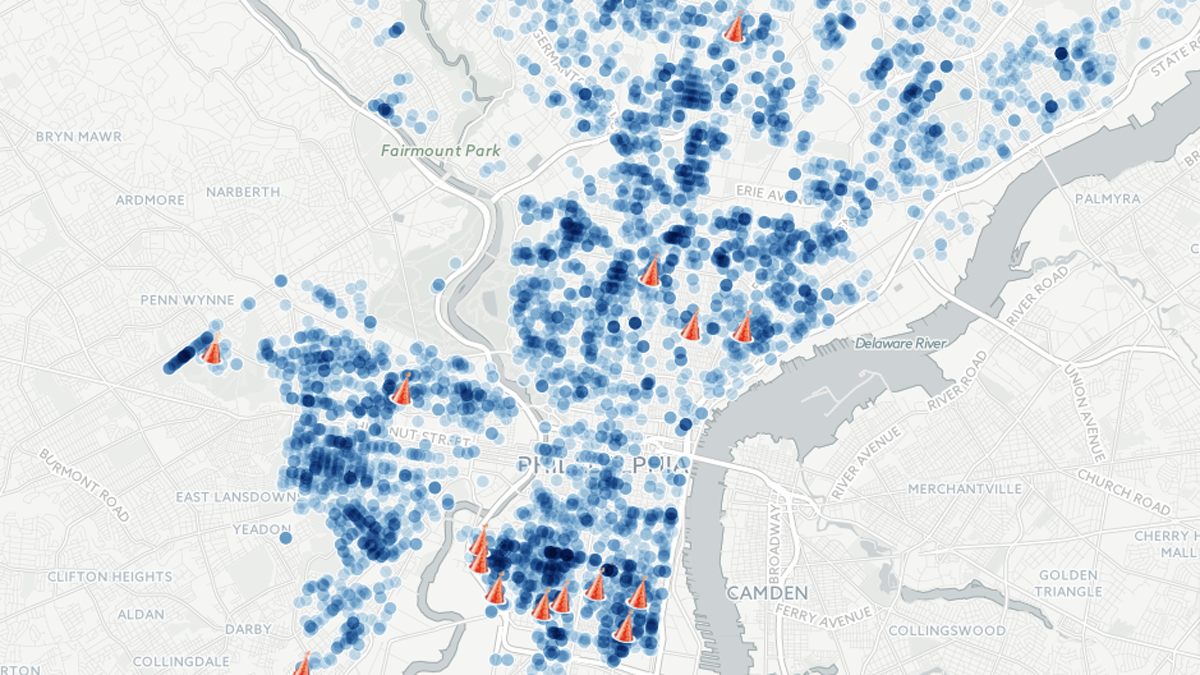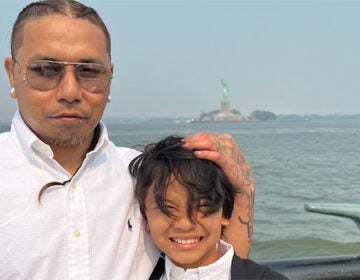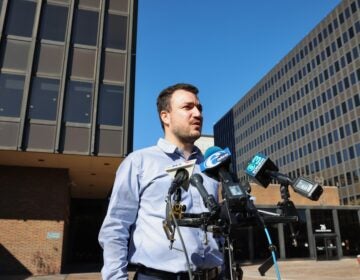Assessing Philadelphia’s health through block party permits
Listen
There are lots of ways to measure a city’s health and vitality. Job growth, satisfaction with the quality of life and crime rates are some of the usual suspects. For our first installment of Philly Index, our project measuring where the city was, is now and going in the future focuses on block parties.
Next year, Philadelphia will elect a new mayor for the first time in eight years. That person will have a long list of problems to deal with: One in four of the city’s residents live in poverty. The Philadelphia School District is broke. And the city only has half the money it needs to pay for the pension benefits it owes retired workers.
But there’s lots of good news for the city’s next mayor, too: The population is up. Crime is down. And a new generation of young people seem dedicated to sticking it out in Philadelphia, through thick and thin.
To cover the mayor’s race, WHYY and NewsWorks are launching a new data-driven project called Philly Index.
Over the next few months, we’ll be posing two big questions: What are the big challenges that the next mayor will have to deal with? And how has Mayor Michael Nutter helped Philly moved forward — or backward — since taking office in 2008?
To find out what the answers are, we’ll be combing through tons of data and statistics. We’ll look at how the city’s homicide rate has changed. We’ll figure out what the city’s tax burden is compared to other cities. We’ll tell you the top complaints to Philly 311, the city’s non-emergency call center. But we’ll look at fun stuff, too, like how the types of dogs people own in Philadelphia have changed over time.
By the time we’re done, we hope we’ll have a better picture of where Philly is — and where it’s going. That’s why we’re calling the project Philly Index.
For the first installment of this project, we looked at the state of block parties in the city. For a fee, the city of Philadelphia lets residents close off their blocks and throw a party. And every year, thousands of blocks do it, usually in the summertime, to celebrate birthdays, graduations and holidays such as July 4th.
“You will actually think you’re on the beach,” said Tracey Gordon who has organized 20-some parties on her block in Southwest Philadelphia. “Everybody brings their pools out for their kids. We have the giant slide. We had R&B music. We had a live band. We had ribs, beef, pork. We had everything. It was just an explosion, an explosion of happiness on our block.”
The good news is that Philadelphia throws more block parties than many other big cities. Last year, Philadelphia approved about 6,000 applications for block party permits. As a comparison, Chicago approved about 4,200 block party applications, even though that city is bigger than Philly. New York City, which is more than five times the size of Philly, approved only 2,300 applications for block party permits. Show me a Philadelphian who doesn’t love besting New York?
Why does this matter? It’s an indirect way of measuring how vibrant a block is. If you have a party on your block, it means you have a leader who organized it. It means the people on your block know each other.
“I wouldn’t say that it signifies a healthy block. I mean our block has a ridiculous number of problems still. But it does at least signify a block that’s trying, a block where people are talking to each other, a block where people are kind of working through whatever their problems are,” said Emaleigh Doley, a block party organizer in Germantown.
WHYY is your source for fact-based, in-depth journalism and information. As a nonprofit organization, we rely on financial support from readers like you. Please give today.




